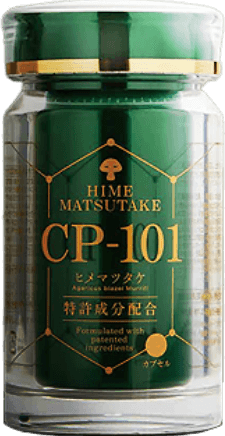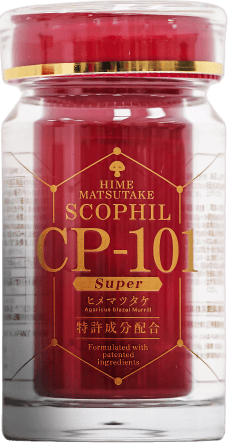Prologue
Keiko Morita (44 years old, Japan): Regaining the "Strength to Fight Cancer" at the Edge of Despair
In 1999, Keiko Morita from Chiba Prefecture, Japan, discovered an abnormal nodule in her left breast during a routine medical examination. Due to fear of surgery and thinking "it probably wasn't a big problem," she chose to avoid treatment. However, over the next five years, the lump grew larger each year. By 2004, the tumor diameter had exceeded 10cm and was accompanied by skin ulceration and bleeding. "During that time, I didn't dare look in the mirror every day," Ms. Morita recalled. "Looking in the mirror made me feel like I was being eroded by the disease bit by bit, which was very frightening." When she finally decided to seek medical treatment, she was diagnosed with Stage IV breast cancer. The doctor told her that surgical opportunities were almost non-existent, and only drug treatment could "try to prolong life."
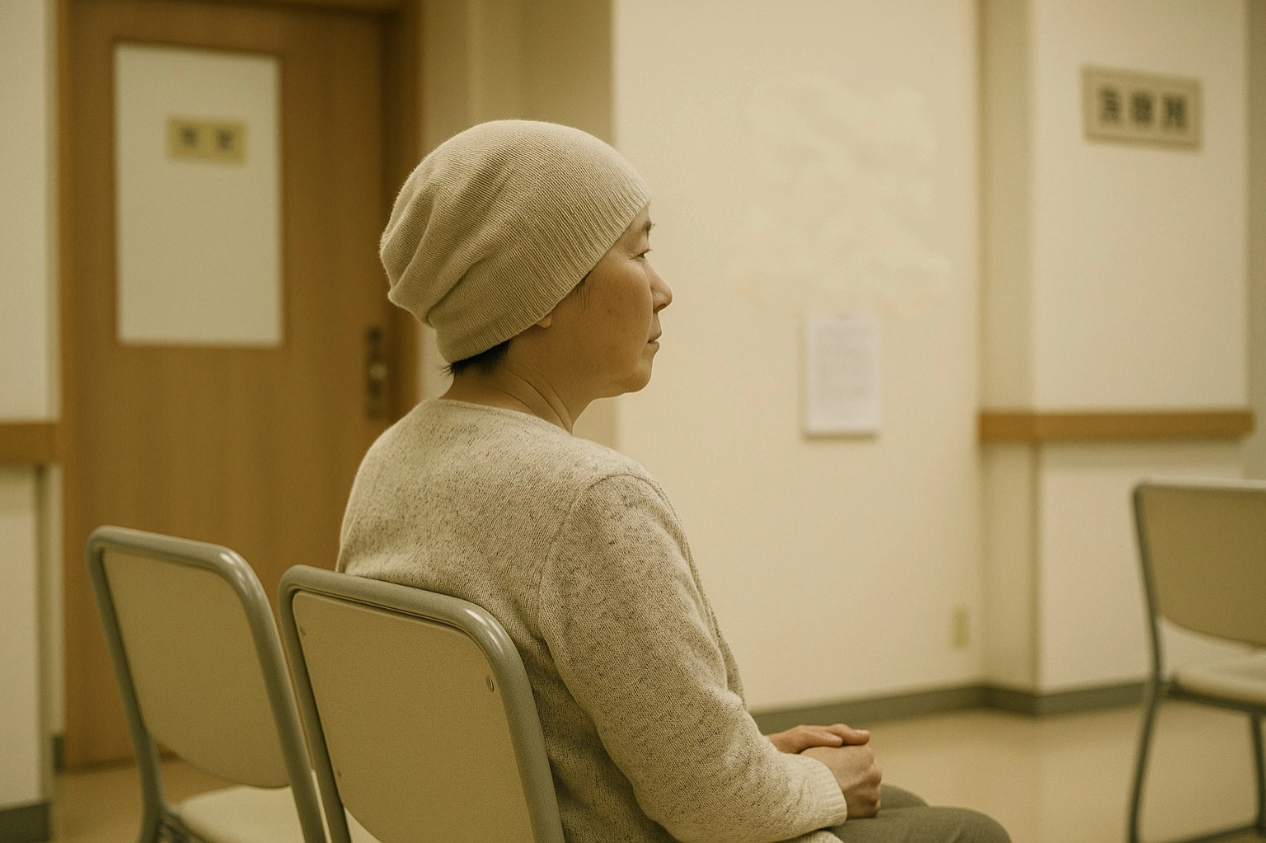
Chemotherapy began immediately. Nausea, severe fatigue, oral ulcers, and persistent low fever made it difficult for her to even stand up at times. "
I even prepared for the worst and arranged family affairs," she said.
Just when the family was almost in despair, the attending physician suggested she try immune adjuvant intervention, such as Agaricus blazei extract (CP-101, Iwade 101 strain), which has some clinical data support in Japan.
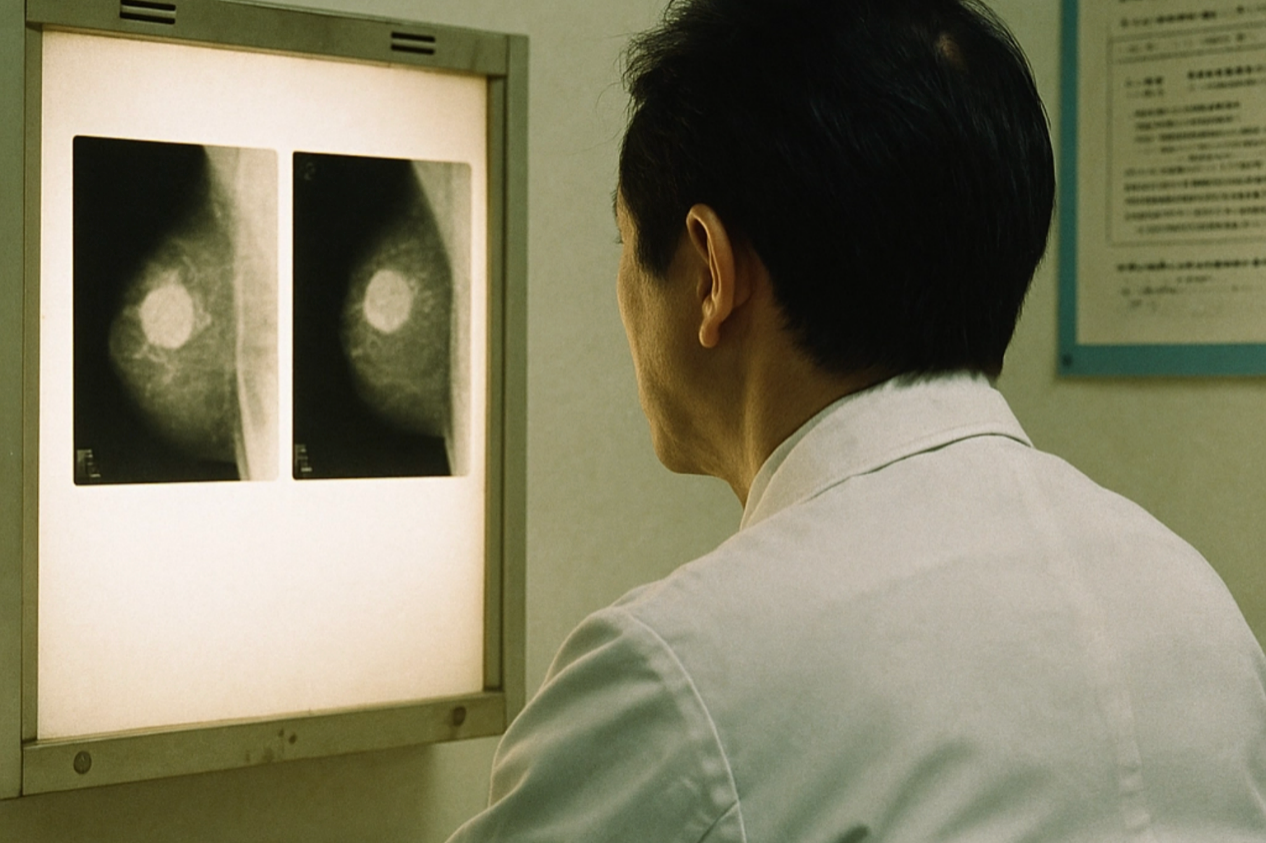
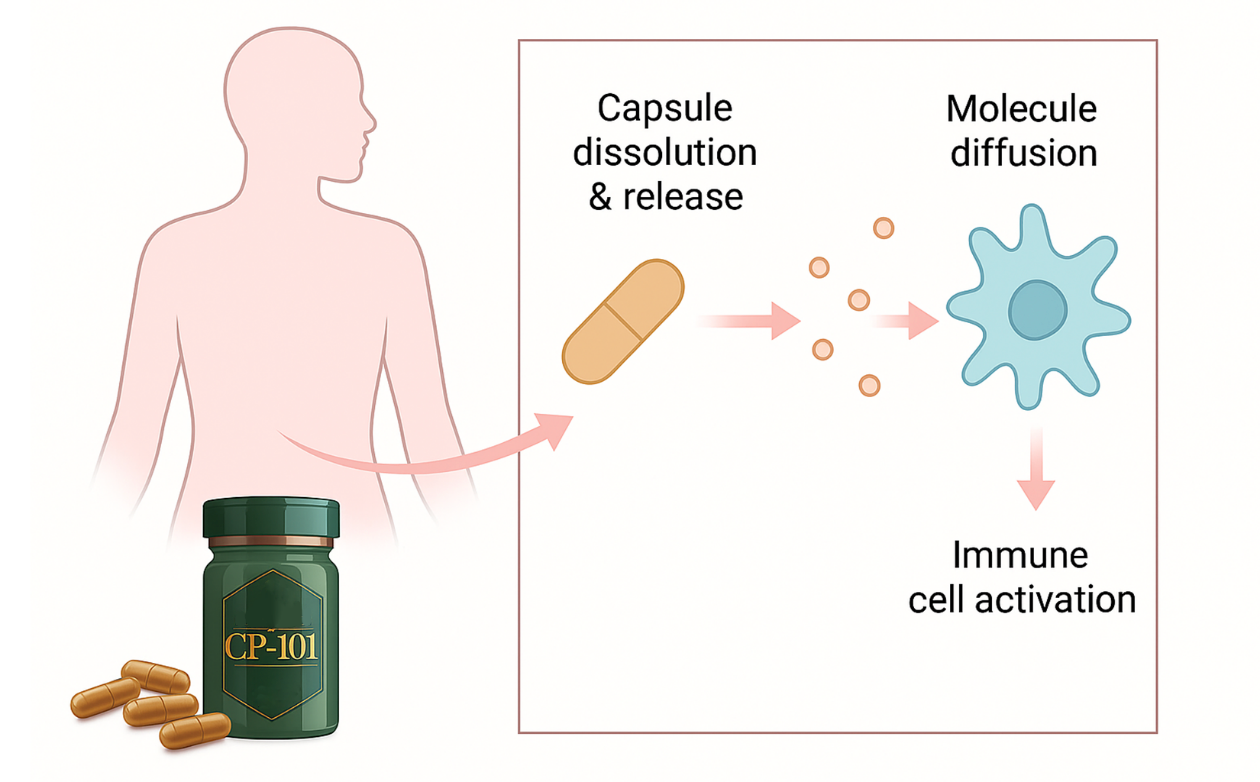
She didn't have much hope initially, but still decided to try — "If it can help me hold on a little longer, maybe there's still a chance."
To the family's surprise, around the 6th to 7th week after taking CP-101, her physical strength showed a noticeable recovery: previously she could only lie in bed all day, but starting around February, she could go downstairs for breakfast and even take walks outside with her husband's company.
"That day the child suddenly said 'Mom smiled today,' and that sentence immediately lifted my spirits."
Subsequent imaging examinations showed that the tumor surface began to necrotize and partially shed.
The doctor immediately decided to seize the opportunity, arranged radiation therapy, and completed surgical resection in May 2005. Post-operative recovery was good, and she returned to work in June of the same year.
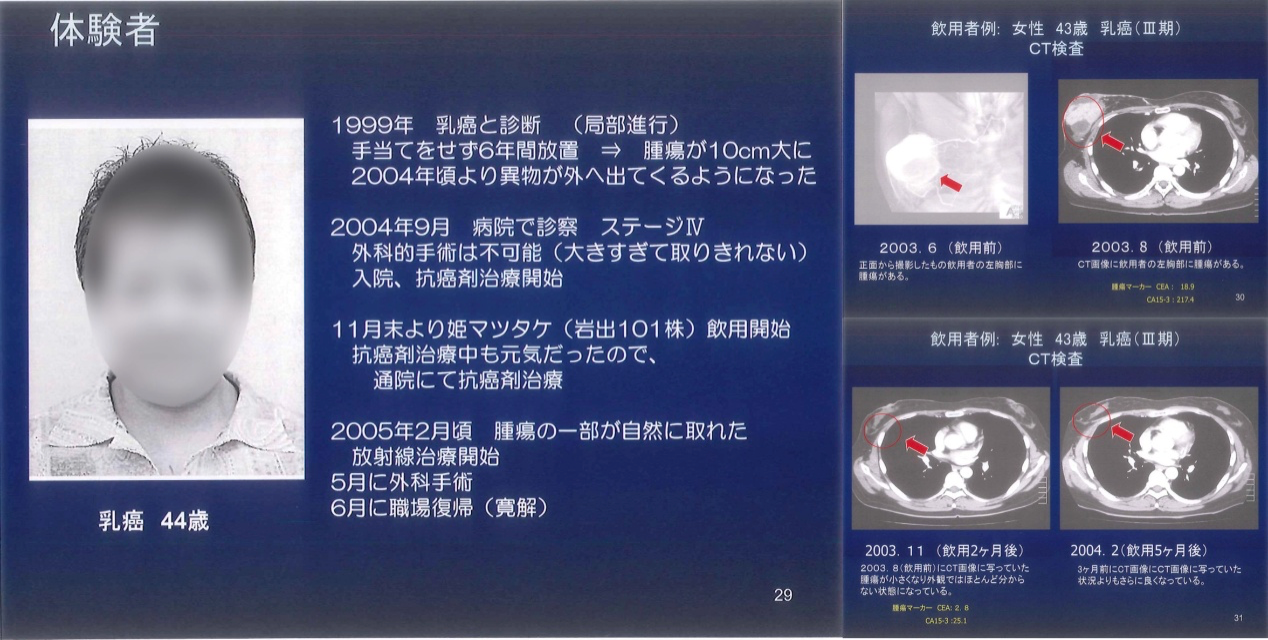
The attending physician stated: "The key to progressing from Stage IV to being operable was not any single treatment, but her ability to maintain immune function during the extremely weakened stage."
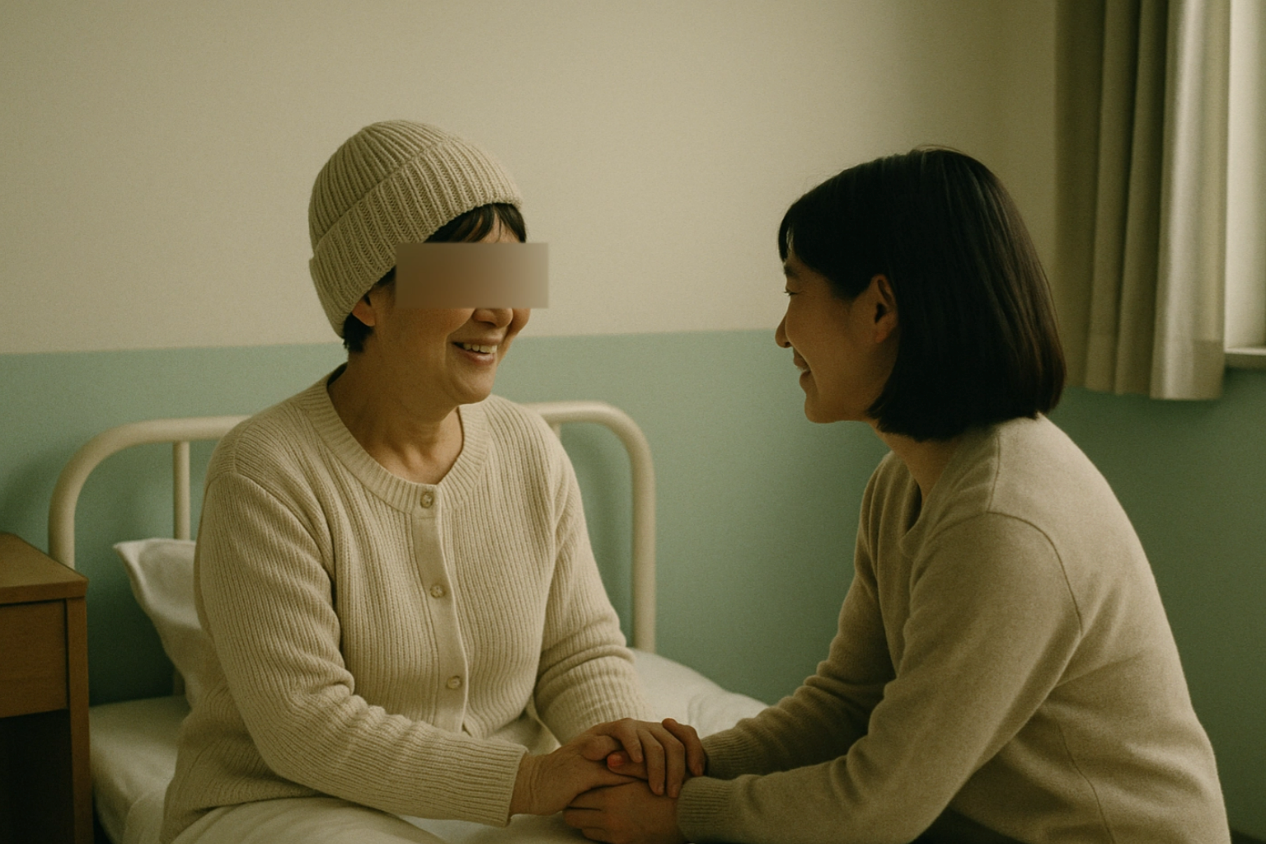
"If I hadn't persisted in taking CP-101 back then, I might not have made it to that day. It's not a miracle, but it gave me back the 'strength' to fight cancer."
Scientific and Clinical Analysis
Keiko Morita's experience is not an isolated case.
In the comprehensive treatment of breast cancer, more and more clinical studies point out:
Enhancing patients' own immune function is a key factor in prolonging survival, improving treatment tolerance, and even gaining another surgical opportunity.
The role of Agaricus blazei (Iwade 101 strain) in this direction is mainly reflected in the following aspects:
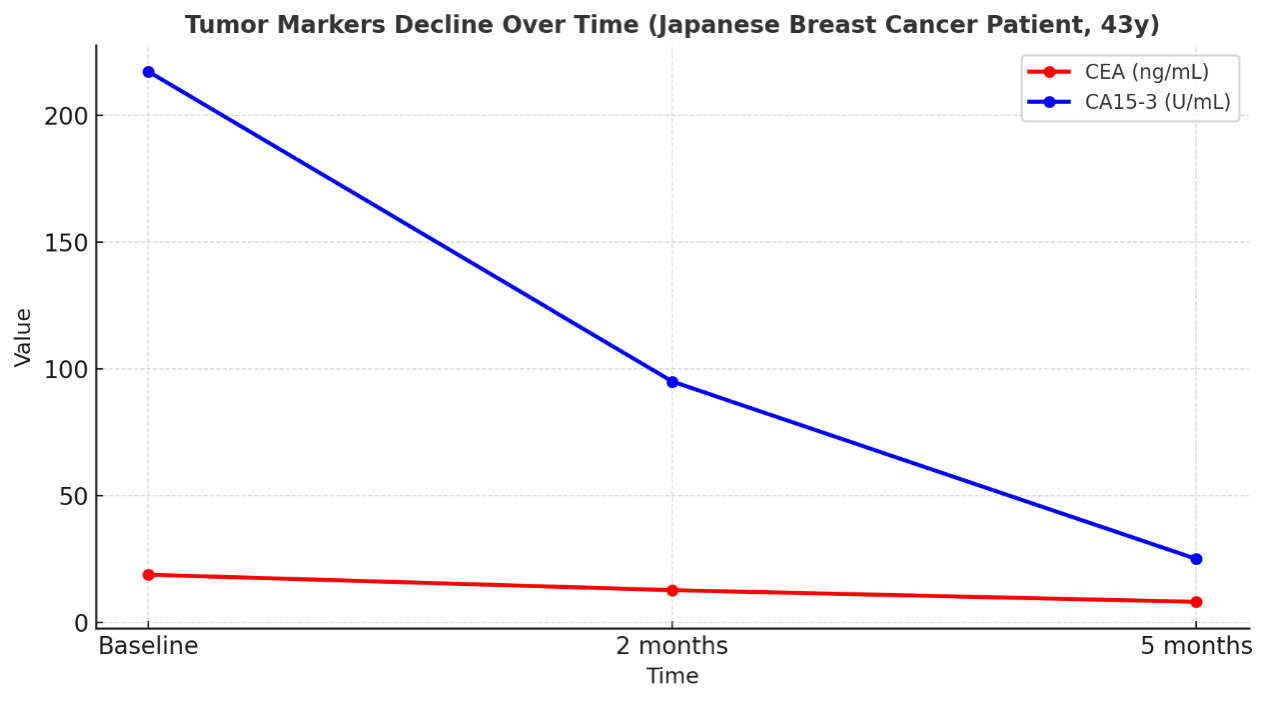
Studies show that CP-101 can improve the activation level of CD8⁺T cells, enabling them to function again.
CP-101 helps reduce IL-6 levels, inhibit inflammatory spread, and improve the immune environment around tumors.

Active polysaccharides in CP-101 can partially block this pathway, enabling immune cells to recognize tumors again.
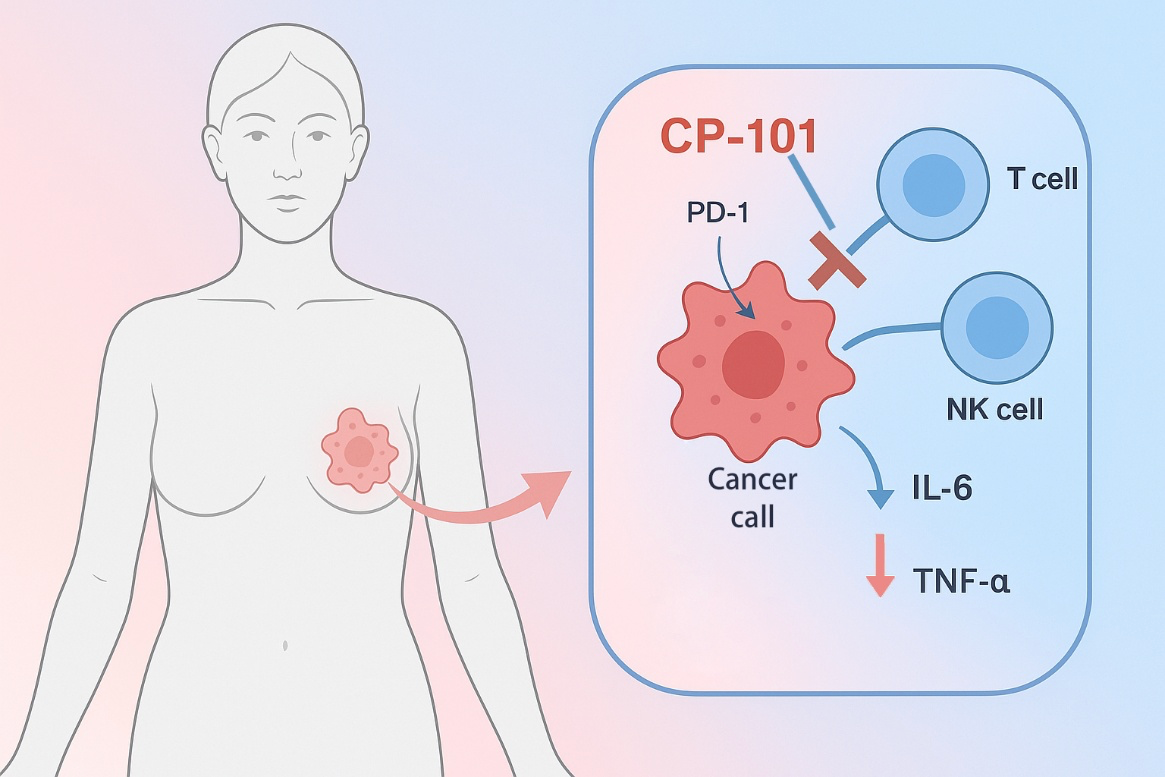
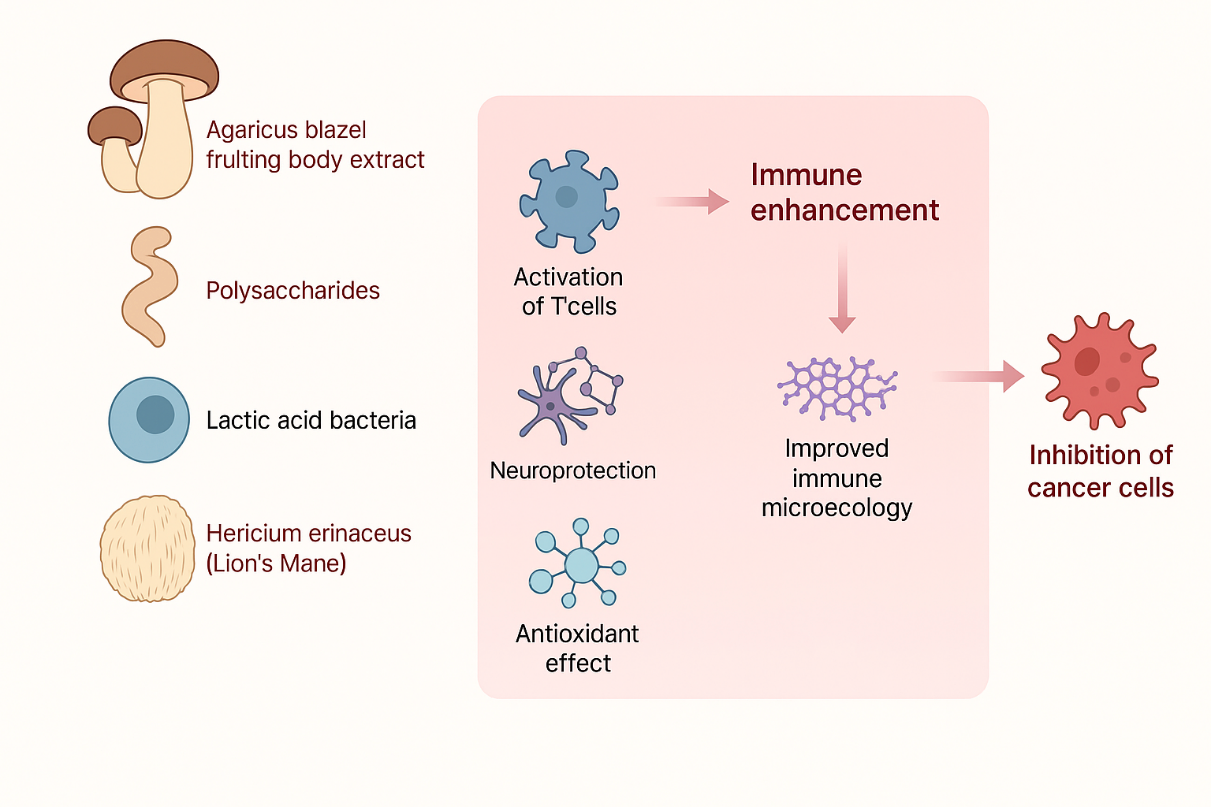
Summary
From "almost no way out" to "still able to take another step"
When Ms. Keiko Morita was diagnosed, she was already at Stage IV breast cancer. The doctor's exact words at the time were "surgical opportunities are almost non-existent, we can only try to prolong life." The family thought all hope was lost. But after combining immune adjuvant intervention, her physical strength gradually returned: first she could get out of bed to eat, then go out for walks. A few months later, examinations showed tumor shrinkage, and the doctor decided to perform surgery on her. After successful surgery, she returned to work. For the family, this was not a miracle, but a visible transformation.
Why was there such a transformation?
Research found that CP-101 can reawaken the body's "killer cells," reduce inflammation, and restore immune function. It doesn't directly kill cancer cells, but helps the body regain strength to fight, helping people get through the most difficult moments.
Living longer and living better
In studies of different cancer types, many patients not only lived longer, but more importantly, their quality of life improved: some could walk again, some had better appetite, some could continue to accompany their families. For patients and families, these changes are more real than numbers.
Different stages, different meanings
Conclusion
CP-101 is not a medicine, but it often gives patients and families an extra thought:
"Still able to take another step."
This strength comes not only from science, but from real stories one by one.
